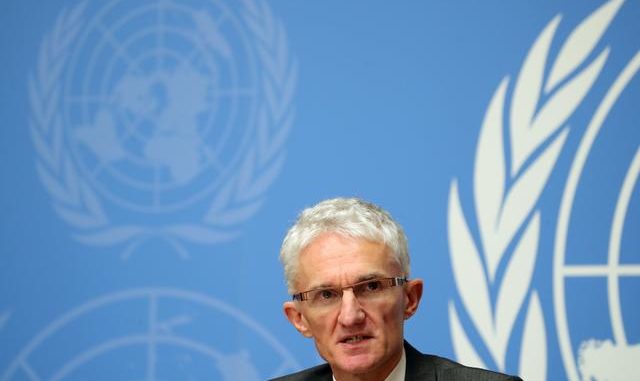
United Nations aid chief Mark Lowcock said Saudi Arabia plans to pay $500 million next week of a pledge it made in February to help fund a humanitarian response in Yemen, which the world body has described as the world’s worst aid crisis.
Lowcock on Monday told the U.N. Security Council that Saudi Arabia – which leads a military coalition fighting in Yemen – planned to pay on Sept. 25 and that the United Arab Emirates had also recently made a payment of $200 million.
In July Lowcock called out Saudi Arabia and the United Arab Emirates for only paying a “modest proportion” of the hundreds of millions of dollars they have pledged.
In February both countries each promised $750 million. U.N. data showed in July that Saudi Arabia had paid only $121.7 million and the United Arab Emirates about $195 million.
At the February pledging event, donors committed to provide $2.6 billion of the $4.2 billion the United Nations was seeking. So far only $1.4 billion of those pledges have been received.
“Unless there is more money in the bank, we will not be in a position to re-open vaccination programmes, nutrition centres, cholera prevention work or other activities that we have had in recent weeks to close down. Other programmes targeting millions of people will also remain at grave risk,” Lowcock said.
The United Nations warned last month that 22 “life-saving” aid programs will be forced to close in Yemen in the next two months if countries do not pay up.
Saudi Arabia leads a Western-backed military coalition that intervened in Yemen in 2015 in a bid to restore the government ousted from power by the Iran-aligned Houthi movement. The United Arab Emirates is a key member of the coalition.
Lowcock said he received confirmation from Saudi Arabia on Monday morning of the planned payment after an assault on Saudi oil facilities that cut almost half of the kingdom’s production, or 5% of global oil supply. The United States accuses Iran of being behind the attack.
Reporting by Michelle Nichols; Editing by Angus MacSwan and Howard Goller
UNITED NATIONS (Reuters) –
